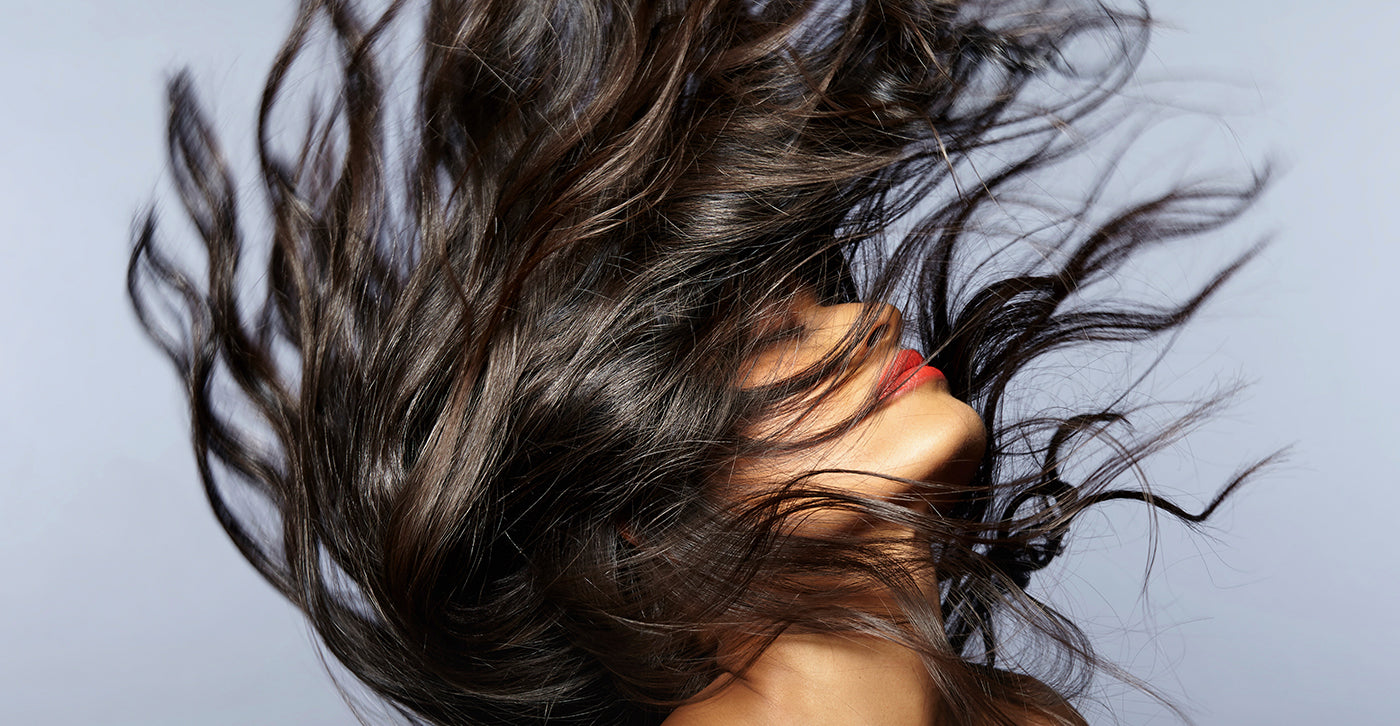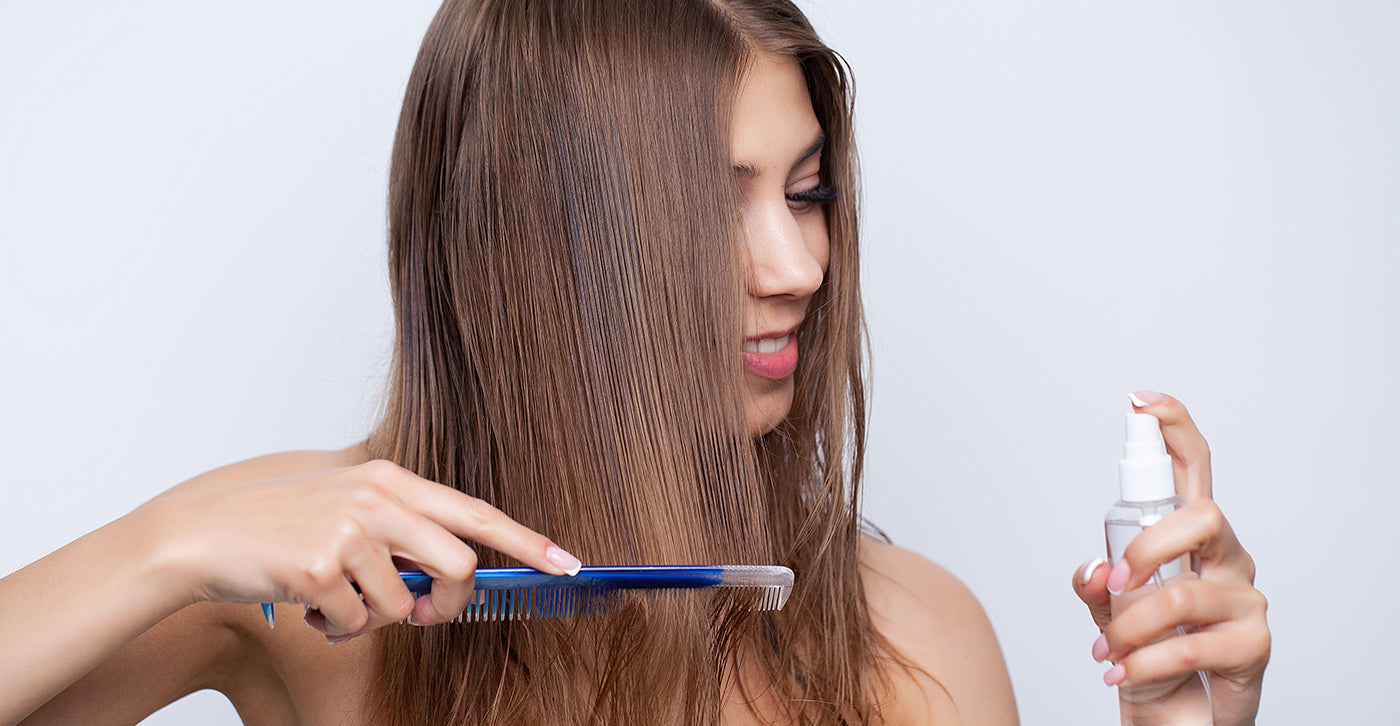Everyone wants long, luscious hair, but with so many hair care tips and tricks out there, it’s hard to know what really works. From myths about cutting hair to strange remedies involving bizarre ingredients, the hair care world is full of misconceptions. So, let’s break down some of the most common hair growth myths and uncover the facts backed by science, trichologist advice, and practical tips for growing long, healthy hair.
Myth: Trimming Your Hair Helps It Grow Faster
Fact: While trimming your hair is essential for keeping it healthy and preventing split ends, it doesn’t directly make your hair grow faster. Hair growth happens at the scalp level, and trimming only removes the dead ends that can make hair look thinner or damaged.
Trichologist Tip: Aim to trim your hair every 6–8 weeks to maintain its health, but don’t expect a miracle in growth speed just from the scissors.
Myth: Shampooing Less Equals Faster Hair Growth
Fact: Shampooing less doesn’t necessarily make your hair grow faster, but it can help with maintaining a healthy scalp. Shampoo is necessary to cleanse your scalp of oil, dirt, and product buildup, which could hinder hair growth if left unchecked. However, using harsh shampoos or over-shampooing can dry out your hair, leading to breakage.
Trichologist Tip: Opt for a sulfate-free shampoo that’s gentle on your scalp and hair, and wash your hair based on your needs—whether that’s daily or a few times a week. Keeping your scalp clean will always support healthy growth.
Myth: Hair Can Grow Faster If You Eat Certain Foods or Take Supplements
Fact: While it’s true that a well-balanced diet full of vitamins and minerals can help support healthy hair growth, there is no magic food or supplement that will make your hair grow faster overnight. Growth happens at the follicle level, and genetic factors play a huge role.
Trichologist Tip: Ensure your diet includes adequate amounts of protein, iron, vitamin D, biotin, and zinc. These nutrients help create the building blocks of strong, healthy hair. But remember, supplements alone won’t work if your diet is still lacking.
Myth: Scalp Massages Make Hair Grow Faster
Fact: Scalp massages can help stimulate blood flow to the scalp, which may create a better environment for hair follicles to thrive, but they won’t magically accelerate hair growth. Think of it as giving your scalp a little TLC to promote a healthy environment for hair to grow at its natural rate.
Trichologist Tip: Regular scalp massages (using your fingers or a scalp massager) can help to relax you and increase circulation, contributing to a healthy scalp. Just be gentle, too much pressure can lead to hair breakage.
Myth: You Need to Use Expensive Hair Growth Products to See Results
Fact: While there are some expensive treatments and products out there that promise miraculous results, the most important factors in hair growth are genetics, a healthy scalp, and overall hair care. Expensive products may not provide the magical results they advertise unless they contain effective ingredients like minoxidil or biotin.
Trichologist Tip: Focus on using products that are formulated for your specific hair type and concerns, whether it’s a gentle shampoo or a nourishing conditioner. Over time, consistency in your hair care routine will show the best results.
Myth: Washing Hair in Cold Water Makes It Grow Faster
Fact: While washing your hair with cold water can help to seal the hair cuticle and add some shine, it won’t speed up hair growth. Hair growth happens internally, not externally, so water temperature doesn’t directly influence the rate at which your hair grows.
Trichologist Tip: It’s more important to use lukewarm water when washing your hair, as hot water can strip the scalp and hair of natural oils, leading to dryness and potential damage.
Myth: Hair Growth Is All About Genetics and Nothing Else
Fact: While genetics play a significant role in the thickness, texture, and growth rate of your hair, other factors can influence how healthy and strong your hair is. A balanced lifestyle, proper hair care, a healthy scalp, and managing stress are just as important in promoting healthy growth.
Trichologist Tip: If you’re experiencing thinning or slow hair growth, it’s important to consider all factors—diet, lifestyle, and scalp health. Consulting a trichologist can help pinpoint the root cause of your hair issues.
Myth: Hair Growth Is All About Using Hair Oils
Fact: Hair oils can be beneficial for moisturizing and nourishing the hair, but they won’t necessarily stimulate faster growth. While oils like castor oil are often touted for their hair-growing benefits, there is limited scientific evidence to support this claim.
Trichologist Tip: Hair oils are great for keeping your hair nourished and adding shine, but they should be used in moderation. Apply a small amount of oil to the ends of your hair or as a pre-wash treatment, but don’t rely solely on oils to promote growth.
Myth: Stress Doesn’t Affect Hair Growth
Fact: Stress is one of the biggest contributors to hair loss. High-stress levels can lead to a condition called telogen effluvium, which pushes hair into the shedding phase prematurely. This causes thinning hair and more hair fall.
Trichologist Tip: Managing stress through exercise, mindfulness, and self-care is essential to maintaining healthy hair growth. Make sure you’re taking care of both your body and mind to reduce the impact of stress on your hair.
Myth: Dyeing or Bleaching Your Hair Stunts Growth
Fact: While excessive use of chemical treatments like bleaching and dyeing can damage your hair and cause breakage, it doesn’t directly stop hair from growing. Hair continues to grow from the follicle at the scalp, regardless of what happens to the strands above it.
Trichologist Tip: If you love coloring your hair, make sure to use high-quality, nourishing hair dye products and take extra care of your hair with hydrating treatments and leave-in conditioners to keep it strong and healthy.
The Bottom Line: Understanding the Science of Hair Growth
Growing long, healthy hair isn’t about following every trend or quick-fix myth you see online. It’s about understanding the science of hair growth, making sure your scalp is healthy, eating a balanced diet, and following a solid hair care routine. If you're struggling with thinning hair or hair loss, consulting a trichologist can give you the personalized advice you need.
Remember, the key to long, healthy hair is consistency, patience, and knowledge. By debunking these common myths and embracing the facts, you’ll be on the right path to achieving the hair you’ve always wanted.








Leave a comment
This site is protected by hCaptcha and the hCaptcha Privacy Policy and Terms of Service apply.